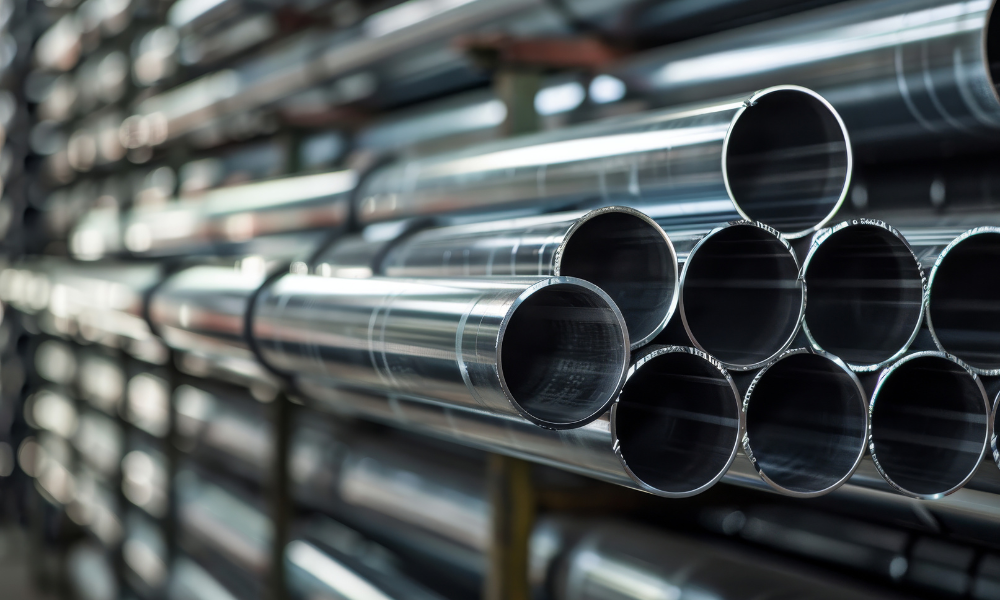Ottawa prepares countermeasures while labour groups press for immediate action to protect jobs

Canada’s decision to delay retaliation against the US’s newly doubled tariffs on steel and aluminum is fuelling uncertainty across the metals sector, with industry leaders warning of job losses and a weakened domestic supply chain.
The Canadian Steel Producers Association stated that the 50 percent tariff rate has effectively shut Canadian steel out of the US market, leaving billions of dollars in product without a destination.
As reported by BNN Bloomberg, the association’s president Catherine Cobden said that even under the 25 percent tariff rate, the industry saw layoffs, reduced investment, and fewer shipments to the US.
She added, “We need urgent action to protect our industry by fully re-instating our retaliatory tariffs on US steel.”
Cobden warned that the Canadian market is at risk of being flooded with diverted steel as a result of US trade restrictions on other countries.
As per Global News, Prime Minister Mark Carney described the tariffs as “unjustified,” “illegal,” and “bad for American workers, bad for American industry and, of course, for Canadian industry as well.”
Despite the criticism, Carney said the federal government would take “some time” before deciding its next move, citing “intensive” trade negotiations with the US.
CBC reports that Carney confirmed the government is preparing “reprisals” in case those talks fail.
Canada’s aluminum and steel sectors supply nearly 50 percent and 25 percent, respectively, of US imports. However, they are now excluded from tariff exemptions extended to countries such as the UK, which maintains a 25 percent rate under a new trade agreement.
The US move has prompted concern that North American supply chains could suffer, with job cuts already being reported and further layoffs anticipated, according to the Canadian Labour Congress.
The Globe and Mail reported that Carney lifted some retaliatory tariffs in April due to concerns about rising consumer prices. However, that decision has come under scrutiny.
Cobden told The Globe and Mail the rollback was “ill-advised” and halted momentum toward reshoring Canadian production.
In Ottawa, steel and union representatives have called for Ottawa to respond swiftly to support domestic operations and protect against surging imports.
Ontario Premier Doug Ford has urged the federal government to respond immediately by matching the 50 percent rate.
Speaking at Queen’s Park, he told reporters “we can’t sit back and let President Trump steamroll us.”
Ford previously introduced a 25 percent surcharge on electricity exported to US homes, but withdrew the measure after the US threatened further tariffs.
Ford also said he had a verbal agreement with US officials that tariffs would not be increased if Ontario refrained from retaliatory measures.
According to The Globe and Mail, he said the agreement had been broken and reiterated that “everything is on the table” for a provincial response.
Finance Minister François-Philippe Champagne affirmed that the steel and aluminum industries are “key to Canada’s prosperity” and pledged government support.
Industry Minister Mélanie Joly added that officials were evaluating all scenarios.
“We are looking at different scenarios right now and we will take a decision, but we need a bit more time,” she said in comments reported by CBC.
She also noted the government aims to impose “maximum pain” on the US while minimizing harm to Canadians.
The federal government has committed all funds from existing counter-tariffs—covering over $90bn in US imports, as reported by Global News—to support impacted workers and businesses.
According to the Aluminum Association of Canada, the higher tariffs will dampen demand and impact workers across sectors including automotive, construction, and defence.
It’s president, Jean Simard, said the impact would be felt on both sides of the border.
Unifor echoed this view, stating in a release that the tariffs are a direct threat to Canadian jobs and national economic security.
The Canadian Labour Congress estimates that 23,000 steel jobs and 9,500 aluminum jobs are at immediate risk.
President Bea Bruske urged the government to “meet force with force” and also called for emergency enhancements to employment insurance and wage subsidies.
“We need to actually see proof in the pudding… that government has a response,” she told reporters during a press conference covered by CBC.
Intergovernmental Affairs Minister Dominic LeBlanc met with US Commerce Secretary Howard Lutnick earlier this week.
He told reporters, as per Global News, that the talks were “positive” and offered an opportunity to explain Canada’s firm position against the tariffs.
But Canada’s ambassador to Washington, Kirsten Hillman, cautioned that it’s “too soon to say we are close” to a resolution.
Meanwhile, political pressure is building in Ottawa.
According to BNN Bloomberg, MP Lisa Hepfner of Hamilton warned the new tariffs could mean “thousands of jobs lost” and “the end of the industry.”
MP Terry Sheehan, representing Sault Ste. Marie, said the industry was already struggling under the original levies and added that entire communities could lose economic stability.
Despite Conservative calls for an emergency debate on the issue, Speaker Francis Scarpaleggia denied the request.
As reported by CBC, interim NDP Leader Don Davies questioned the delay, saying, “These tariffs have been foreshadowed for some time. We need action.”
Carney and Trump are expected to meet at the G7 summit in Kananaskis, Alberta, in the coming days.



